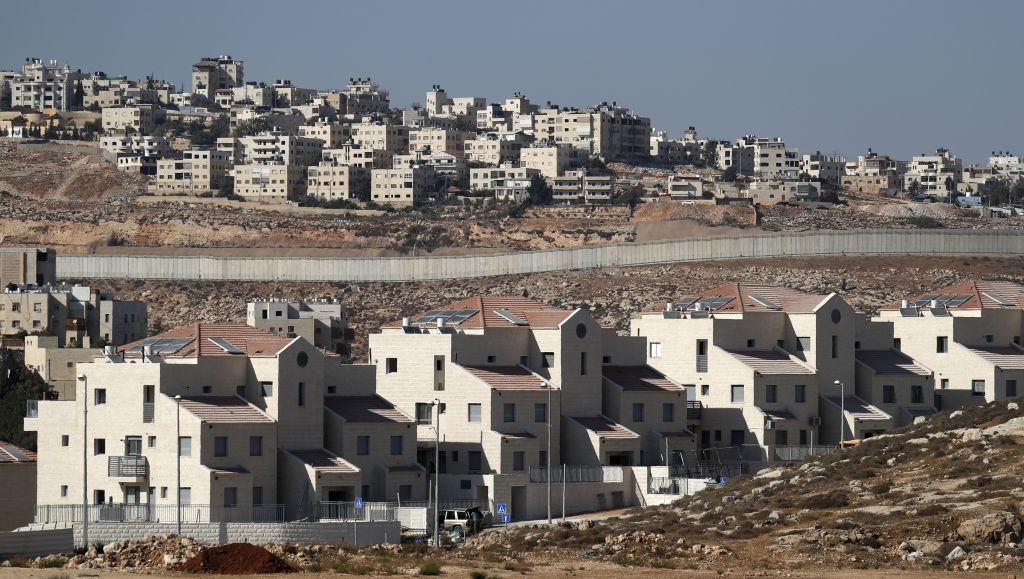The false choice between Palestinian and Jewish liberation

Israel’s forceful military response to Hamas’s 7 October massacre has sparked massive demonstrations around the world. Amid the ongoing war in Gaza, Israel has once again been cast as an oppressive colonial power in many Western circles, with the chant ‘Palestine will be free, from the river to the sea’ becoming a common rallying cry on college campuses and social-media platforms.
But this perception has little to do with the reality on the ground. Contrary to what Hamas and its Western apologists believe, Israel’s sizeable Palestinian minority is not eager to be ‘decolonised.’ A recent poll conducted by the Israel Democracy Institute found that despite not having full equality, the share of Palestinian Israelis who sympathise with the Jewish state has increased to 70% since the outbreak of the war in Gaza, up from 48% in June.
While the colonial nature of Israel’s occupation of the West Bank is undeniable, it is also important to note that Palestinians’ Pavlovian rejection of Israel’s two peace proposals at the beginning of this century hastened the demise of the Israeli peace movement. The late Palestine Liberation Organization chairman Yasser Arafat rejected the first proposal, the so-called Clinton peace parameters, in 2000—a decision that was strongly condemned by the then-Saudi ambassador to the United States, Bandar bin Sultan, who called it a ‘crime against the Palestinian people’.
The second proposal was made in 2008. The late Saeb Erekat, then the Palestinians’ chief negotiator, acknowledged that Israel ‘offered us 100% of the land’ and a capital in East Jerusalem. His response—‘Why should we hurry after all the injustice done to us?’—reflected Palestinians’ righteous anger but was similarly misguided.
By routinely eschewing moral accountability, the Palestinians have inadvertently fuelled the rise of Israel’s fundamentalist far right. Given that they are the Israeli left’s natural partners in denouncing the occupation, it was deeply disappointing to see mainstream Palestinian figures vehemently deny that Hamas’s 7 October massacre happened at all. One such figure, Hanan Ashrawi, went so far as to claim that the attack was fabricated by Israeli Prime Minister Binyamin Netanyahu and US President Joe Biden.
And as Israel has come to be viewed as the ultimate colonial oppressor, the sins of Western imperialism fade into the background. Even Noam Chomsky, a trenchant critic of Israel’s immoral actions, has acknowledged that the Israeli-Palestinian conflict bears little resemblance to those in Algeria and Vietnam. Israelis are not pieds noirs, as white French settlers born in Algeria were once called.
Yet many prominent left-wing critics continue to push this simplistic narrative. For example, University of California, Berkeley, philosopher Judith Butler, refuses to limit criticism of Israel to its conduct in the occupied territories, instead advocating a system of ‘cohabitation’ from the Mediterranean to the Jordan River. While Butler, who uses they/them pronouns, has condemned Hamas’s ‘terrifying and revolting massacre’, they have not renounced their previous characterization of Hamas and Hezbollah as progressive ‘social movements’ that are ‘part of a global left’. Similarly, George Washington University psychology professor Lara Sheehi has rationalised Hamas’s actions by saying that ‘we need to reckon with how horrific liberation can be’.
By contrast, Slovenian philosopher Slavoj Žižek has rejected such hollow moralism, unequivocally denouncing Hamas’s terrorist attack and correctly identifying the tacit alliance between fundamentalists on both sides as the real problem. While his warning that Israel could be cast as the foremost oppressor of our time might come true, this characterisation would also be a gross oversimplification and inadvertently vindicate the region’s most oppressive regimes. The 400,000 civilians killed in the Yemen war between Iran’s proxies and a Saudi-Emirati alliance would also remain forever anonymous.
If Israel were truly the ‘invented’ and ‘artificial’ colonial state that it is often claimed to be, it would have collapsed long ago. Even now, Hamas operates under the belief that Israel will ultimately fall, just as the Crusader Kingdom of Jerusalem did in the twelfth century.
Meanwhile, the conflict has persisted for 55 years in the occupied territories and 75 years within Israel proper. No colonial power in history, however mighty, has withstood such a prolonged struggle for national liberation. Generally, a colonial occupation is not considered so vital to the coloniser’s survival that it would be sustained even in the face of relentless uprisings, growing international outrage, and the hostility of the entire Arab world.
But even if the colonial paradigm applies to the Israeli-Palestinian conflict, context remains crucial. In his 1957 book The Colonizer and The Colonized, French-Tunisian writer Albert Memmi—a self-identified ‘Arab Jew’—championed the liberation of colonised countries. His 2006 book Decolonization and the Decolonized, however, reflected his growing concern over the ‘widespread corruption, tyranny, restriction of intellectual growth, violence toward women, xenophobia, and the persecution of minorities’ that characterised the post-colonial era.
Palestinian scholar Edward Said shared these concerns, lamenting the transformation of former colonial states into one-party dictatorships plagued by rapacious oligarchies and civil unrest. ‘One can already see in Palestine’s potential statehood the lineaments of a marriage between the chaos of Lebanon and the tyranny of Iraq,’ he warned.
Moreover, the colonialism debate directly affects the feasibility of a two-state solution. Much like Memmi and Said, Israeli policymakers are acutely aware of the potential risks in Palestine’s journey toward independence, such as faltering state-building and the danger of a radical Islamist group rising to power and forging alliances with Israel’s regional adversaries. The ongoing war underscores these concerns, highlighting Iran’s strategy of surrounding Israel with heavily armed proxy militias in Gaza, Lebanon, Syria, and Yemen.
Instead of a straightforward clash between coloniser and colonised, the conflict between Israelis and Palestinians more closely resembles a Hegelian tragedy where both sides have legitimate claims. In the short term, ending the appalling human and material destruction of the current war means ousting Netanyahu’s extremist government and reining in Hamas. But to achieve a permanent, durable peace, we must move beyond facile analogies and recognise the complexity and multifaceted nature of the challenge at hand.